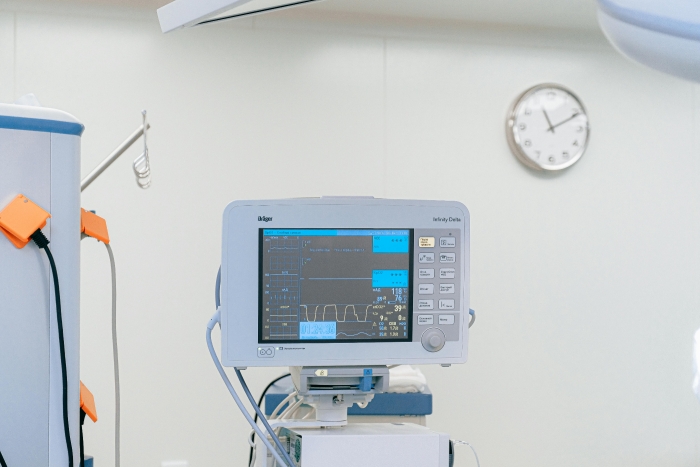One of the biggest hospitals in the Northwest has changed its hot water feed entirely over to highly efficient continuous flow water heaters that are I2HY20 certified for 20% Hydrogen blends. The site has installed 10 Rinnai N Series 1600e units which are cascaded so that the whole system can deliver almost 10,000 litres of temperature controlled hot water on demand 24/7.
The main drivers for the decision to install Hydrogen blend ready continuous flow waters was the pressing need to lower the carbon intensity of the current storage water heaters. At the same time the hospital needed to ensure they had a reliable, robust system that would continuously deliver the vital supplies of hot water on demand. This was supported by the Rinnai N-series Hydrogen Blend ready water heaters now coming with a 12-year warranty.
The Rinnai system was designed by the company’s in house technical services team in close cooperation with the leading building services consultancy which specified the new system. The consultancy team took full advantage of the carbon, capital expenditure and operational expenditure calculations provided by Rinnai’s specialist design team.
‘Like for Like’ is the assumed replacement when a stored water system or unit comes to be replaced. However it is important to assess the site usage and requirements during a “distress” replacement as this can be the ideal time to lower onsite carbon and increase efficiency whilst futureproofing the system for the next 10-15 years.
“So, what can continuous flow solutions offer that can make this entire process a lot easier? Continuous flow, instant delivery of hot water delivery provides constant flows of temperature specific and controlled end-product, with units which are hydrogen blends and BioLPG ready. They are also just a one-man lift, no need for lifting gear.
- Pete Seddon, Rinnai UK
‘Not only that, but if the appliance being replaced was non-condensing and the new appliance was condensing, then the flue would require changing as well as the provision to discharge condensate. Plant rooms are very rarely designed to remove equipment. This requirement to remove equipment before new is installed would have a major impact - and it takes so much time. The whole system would have to be completely shut down to allow such major works to take place and all sites, especially healthcare ones, simply cannot allow this to happen’ adds Mr Seddon.
The other benefit is the ability to cascade the Rinnai appliances so when hot water demand fluctuates the systems will regulate energy input to ensure the system is always maximising energy usage. Another benefit of cascade solution is creating built-in redundancy – this means that if one unit needs to be shut down the complete site still has ready access to hot water.
A recent CPD entitled: “Carbon and Economic Benefits of Zero Storage in Hot Water Systems,” compares the operational, economic and ecological performance of a Rinnai N series model to that of a typical storage water system.
Rinnai N series models were found to provide considerable benefits in 1st and 5th year running costs, total lifecycle costs and 1st and 5th year carbon footprints. When compared to a traditional storage water system, the Rinnai N series has been proven to deliver 20% less operational costs, 30% less fuel consumption and capital costs are reduced by 20% in the examples highlighted in the CPD.
All Rinnai continuous flow water heaters are compact and allow for significant savings in plantroom space. All percentages are evaluated at a minimum and could be higher than stated.
Rinnai’s N Series range of condensing continuous flow water heaters are officially certified for I2HY20 Hydrogen blends meaning that they are fully certified for usage with methane and Hydrogen blends making them formally ready for Hydrogen blending.
SAVINGS CALCULATED UTILISING CONTINUOUS FLOW HOT WATER HEATING
15-20 % of the running cost,
30 % of the upfront cost,
15-20 % in carbon footprint,
60 % in space,
80 % in weight.


